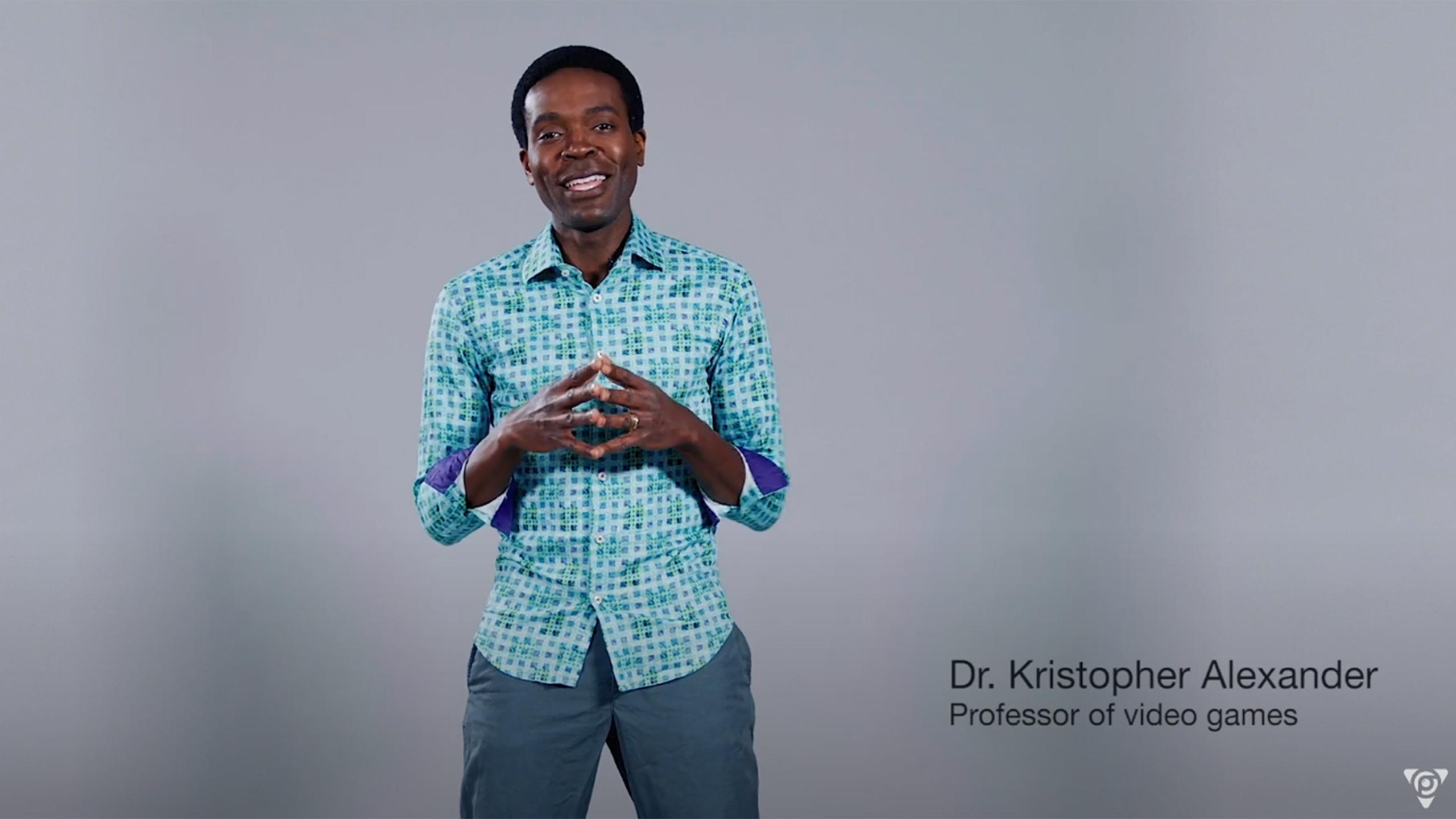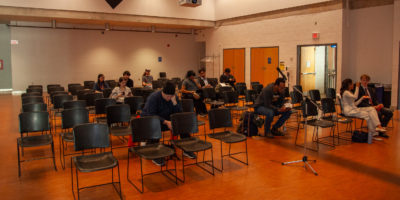By Sidra Jafri
With Ryerson’s third semester of remote learning proving student engagement difficult to maintain, professor Kristopher Alexander seems to have found a solution to help students stay alert during continuous hours behind a screen.
Alexander is a professor at the RTA School of Media who specializes in video game research and eSports infrastructure. He teaches courses such as Introduction to Video Game Design and eSports Production. Beyond using Zoom, Alexander also streams his lectures on Youtube, Facebook and Twitch simultaneously using an open broadcaster system (OBS).
“It’s kind of platform agnostic. I wasn’t choosing, I was just doing all of them,” said Alexander.
Alexander has been a gamer himself for the last 30 years and would play a minimum of four to 12 hours a day. He is globally ranked in Street Fighter III: 3rd Strike, as well as in Lightseekers, where he was number one in the world. He began streaming on Twitch for fun back in 2017.
“There’s going to be a correlation between successful game designers who have been building experiences for somebody else and classroom instructional design,” said Alexander. “It’s time to talk about how video games, outside of playing, can engage people. What we’re doing on Twitch can effectively engage students virtually.”
Minimizing Zoom fatigue through production value
Zoom can be difficult to engage with because of “Zoom fatigue, a term referring to the negative health effects caused by relying mainly on virtual interactions, according to an article written by Robby Nadler, director of Academic Professional and Technical Writing Development at the University of California.
Nadler’s article explains that this phenomenon is not specific to staring at a screen for too long, but moreso based on how people interact with one another virtually. Synchronous online consultations (SOCs), compared to face-to-face-interactions in the real world, don’t allow students to feel as if they are in the full presence of their instructor, he writes. Being on a video conference, where they aren’t as engaged or don’t feel as included can cause symptoms of Zoom fatigue.
According to Alexander, people are able to watch live streams and YouTube videos for hours on end because of the production value of the content. Zoom video can be dull, dark and pixelated, which can make it hard to watch for too long. This also helps explain why SOCs can be draining compared to face-to-face interactions: SOCs just aren’t as visually exciting or pleasant.
“A lot of it has to do with dopamine,” said Alexander. “You take that human out [of learning by] sitting them in a classroom or somebody using a web camera that’s not color corrected.”
Alexander explains that by using on-screen text chatting and live subtitles, students are able to stay engaged with the content by interacting with him through these features, as he also engages with them.
Another way he combats fatigue is by color correcting his video.
“I’ve spent so much time understanding color and lighting to add it, so it gives the stream a little bit more of a pop. That’s what students are used to seeing on YouTube,” said Alexander.
Nathan Santos, a 2020 alum of the sport media program at Ryerson, is a mentee of Alexander’s. Though Santos never had the chance to take one of Alexander’s classes, he says he is envious of any student who is able to.
“His passion for his projects and his enthusiasm to see his students learn and grow and succeed is second to none, quite frankly. All of those things are what make him different and special.” said Santos
Despite Santos not being his student, Alexander took him on for his practicum project in fall 2019. Santos explains that Alexander doesn’t keep his techniques to himself, rather he wants to share it with anyone willing to learn and put the work in.
For Santos, Alexander is unique. His infectious energy and willingness to go the extra mile with students makes Santos believe that Alexander is a stand out professor.
“Dr. Alexander is the crossroads between video games and academia, connecting what some may see as separate entities, he merges them to get the best of both worlds.”










Leave a Reply